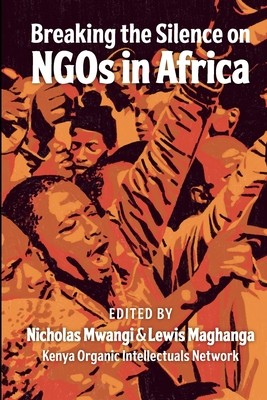
- We will send in 10–14 business days.
- Publisher: Daraja Press
- ISBN-10: 1990263674
- ISBN-13: 9781990263675
- Format: 15.2 x 22.9 x 0.7 cm, minkšti viršeliai
- Language: English
- SAVE -10% with code: EXTRA
Critical Reflections on the Role of Ngos in Africa (e-book) (used book) | bookbook.eu
Reviews
Description
Members of the Organic Intellectuals Network are active organizers in the struggle to achieve social justice. They have experienced the contradictions of the NGO discourse and, just like others before them, have found themselves in the struggle versus survival dilemma. To get a clear picture of our contemporary struggles and the despair brought about by NGOs operating in the proletarian movement, comrades decided to reflect, study, and analyze Prof. Issa Shivji's book Silences in NGO Discourse: The Role and Future of NGOs in Africa. For the authors, these analyses and reflections are based on personal experiences in their day-to-day organizing. In summarizing the authors' observations regarding the impacts of NGOs in organizing, this book calls into question the fundamental question, 'why do NGOs exist?' To answer this question, the authors provide a historical chronology of the resistance in Kenya, Zimbabwe and the rest of Africa, relating those to the subjective factors in existence at every period. Through this, a scientific relationship can be drawn between social movements and NGOs in our current epoch. From their experiences with NGOs, the authors, representing grassroots social movements, highlight the dangers associated with donor funding. Often, donor funding ends abruptly after making people dependent on them, creating severe strain on grassroots organizations. The more one engages with NGOs, the softer one becomes to critique NGOs, particularly in highlighting their relationship to imperialism. Further, NGOs usually help in driving reforms. However, they play no part in revolutionary work. As a result, they merely preserve the present order and help exacerbate the frustrations arising from massive inequality in our society. In the long run, NGOs play a critical role in stifling the development and independence of grassroots social movements. This publication also includes two previously published essays by Prof Issa G Shivji, Silences in NGO Discourse: The Role and Future of NGOs in Africa, and Reflections on NGOs in Tanzania: What We Are, What We Are Not and What We Ought To Be
- Publisher: Daraja Press
- ISBN-10: 1990263674
- ISBN-13: 9781990263675
- Format: 15.2 x 22.9 x 0.7 cm, minkšti viršeliai
- Language: English English
Members of the Organic Intellectuals Network are active organizers in the struggle to achieve social justice. They have experienced the contradictions of the NGO discourse and, just like others before them, have found themselves in the struggle versus survival dilemma. To get a clear picture of our contemporary struggles and the despair brought about by NGOs operating in the proletarian movement, comrades decided to reflect, study, and analyze Prof. Issa Shivji's book Silences in NGO Discourse: The Role and Future of NGOs in Africa. For the authors, these analyses and reflections are based on personal experiences in their day-to-day organizing. In summarizing the authors' observations regarding the impacts of NGOs in organizing, this book calls into question the fundamental question, 'why do NGOs exist?' To answer this question, the authors provide a historical chronology of the resistance in Kenya, Zimbabwe and the rest of Africa, relating those to the subjective factors in existence at every period. Through this, a scientific relationship can be drawn between social movements and NGOs in our current epoch. From their experiences with NGOs, the authors, representing grassroots social movements, highlight the dangers associated with donor funding. Often, donor funding ends abruptly after making people dependent on them, creating severe strain on grassroots organizations. The more one engages with NGOs, the softer one becomes to critique NGOs, particularly in highlighting their relationship to imperialism. Further, NGOs usually help in driving reforms. However, they play no part in revolutionary work. As a result, they merely preserve the present order and help exacerbate the frustrations arising from massive inequality in our society. In the long run, NGOs play a critical role in stifling the development and independence of grassroots social movements. This publication also includes two previously published essays by Prof Issa G Shivji, Silences in NGO Discourse: The Role and Future of NGOs in Africa, and Reflections on NGOs in Tanzania: What We Are, What We Are Not and What We Ought To Be


Reviews